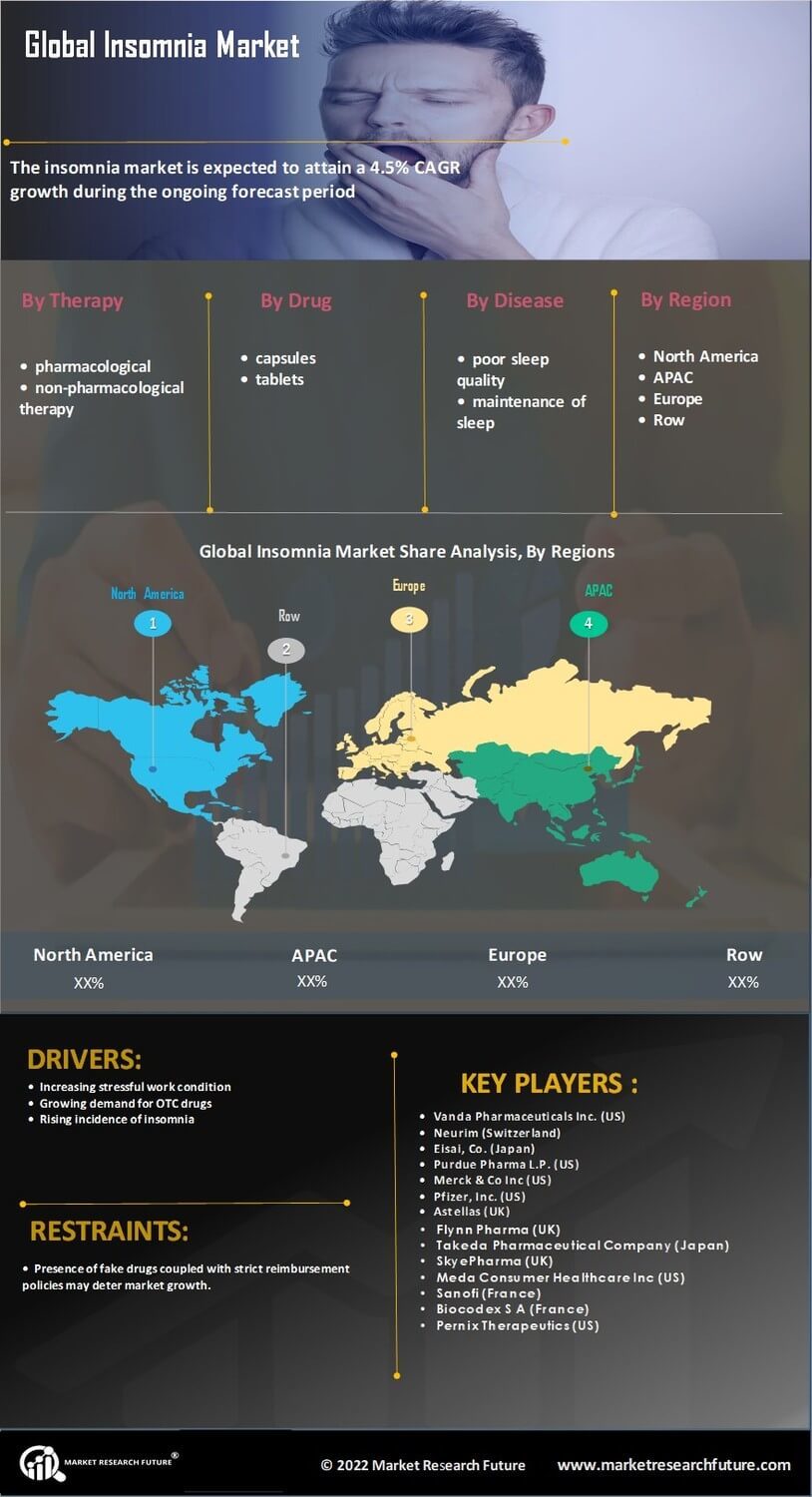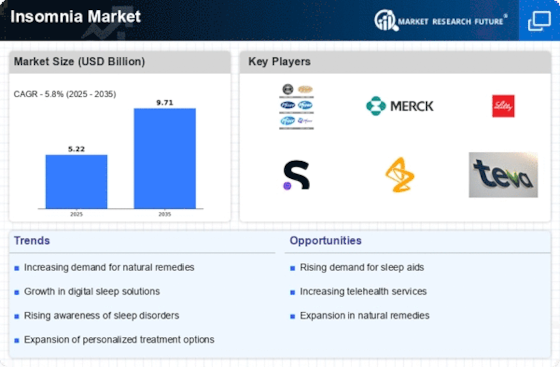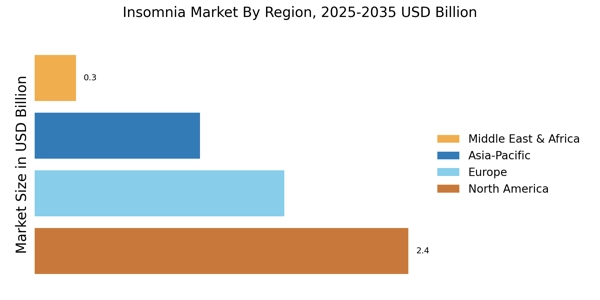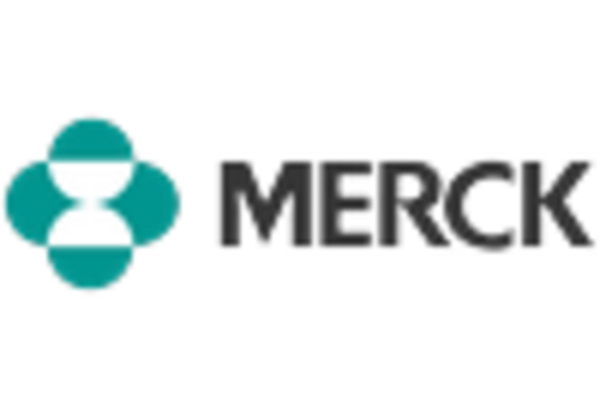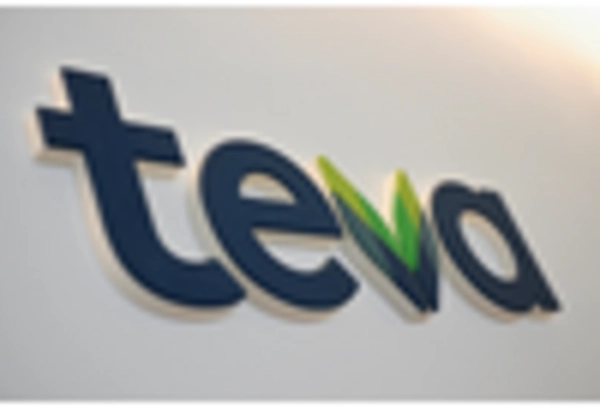Shift Towards Natural Remedies
The Insomnia Market is witnessing a shift towards natural remedies as consumers increasingly prefer holistic approaches to health. This trend is characterized by a growing interest in herbal supplements, essential oils, and other natural sleep aids. Research suggests that many individuals are seeking alternatives to pharmaceutical interventions, which may have undesirable side effects. The market for natural sleep aids is expanding, with consumers gravitating towards products that promote relaxation and improve sleep without the risks associated with conventional medications. This shift indicates a potential growth area within the Insomnia Market.
Aging Population and Sleep Disorders
The aging population is a critical driver of the Insomnia Market, as older adults are more susceptible to sleep disorders, including insomnia. As the demographic landscape shifts, the number of individuals experiencing sleep-related issues is expected to rise. Data indicates that a significant portion of the elderly population reports difficulties in achieving restful sleep, which can adversely affect their health and quality of life. This demographic trend suggests that the Insomnia Market will likely expand to cater to the specific needs of older adults, offering tailored solutions to address their unique sleep challenges.
Growing Awareness of Sleep Disorders
There is a rising awareness regarding sleep disorders, particularly insomnia, which is significantly influencing the Insomnia Market. Educational campaigns and health initiatives are shedding light on the importance of sleep health, leading to increased diagnosis and treatment of insomnia. Recent statistics indicate that a considerable percentage of the population suffers from insomnia, prompting healthcare providers to recommend various treatment options. This heightened awareness is likely to drive demand for insomnia-related products and services, as individuals seek effective solutions to improve their sleep quality and overall well-being.
Impact of Stress and Anxiety on Sleep
The Insomnia Market is significantly impacted by the rising levels of stress and anxiety in contemporary society. As individuals face increasing pressures from work, personal life, and global events, the prevalence of insomnia is likely to rise. Studies have shown a correlation between heightened stress levels and sleep disturbances, leading to a greater demand for insomnia treatments. This trend suggests that as stress and anxiety continue to affect a large segment of the population, the Insomnia Market may see a corresponding increase in the need for effective sleep solutions.
Technological Advancements in Sleep Aids
The Insomnia Market is experiencing a notable surge due to rapid technological advancements in sleep aids. Innovations such as wearable sleep trackers and smart mattresses are becoming increasingly prevalent. These devices not only monitor sleep patterns but also provide personalized recommendations for improving sleep quality. According to recent data, the market for sleep technology is projected to reach substantial figures, indicating a growing consumer interest in tech-driven solutions. This trend suggests that consumers are more inclined to invest in products that leverage technology to enhance their sleep experience, thereby driving growth in the Insomnia Market.
